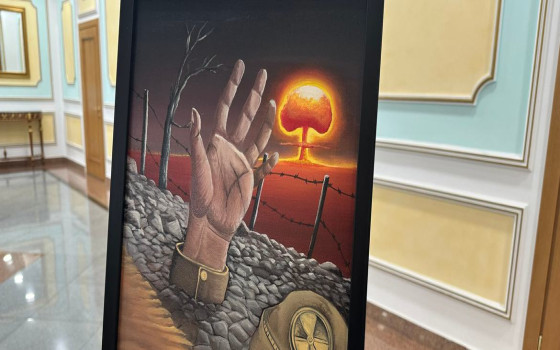
Enough is enough, let's put an end to nuclear testing once and for all

- Europe and Arabs
- Friday , 30 August 2024 8:40 AM GMT
New York: Europe and the Arabs
In 2009, the United Nations General Assembly declared August 29 as the International Day against Nuclear Tests. This date marks the official closure of the Semipalatinsk nuclear weapons test site in present-day Kazakhstan on 29 August 1991. That site alone had witnessed 456 nuclear test explosions between 1949 and 1989. According to Madja in an article published by the United Nations website through its daily news bulletin, a copy of which we received this morning, the article also stated: “Between 1954 and 1984, an average of at least one nuclear weapon test was carried out somewhere in the world every week, most of them far more powerful than the Hiroshima bomb. Nuclear weapons were detonated in the air, above and below the ground, and at sea. The radioactivity from these test explosions spread throughout the planet and deep into the environment. It can still be tracked and measured today in elephant tusks, in the coral reefs of the Great Barrier Reef, and in the deepest ocean trenches. At the same time, nuclear weapons stockpiles grew dramatically. By the early 1980s, There were about 60,000 nuclear weapons, most of them far more powerful than the bombs dropped on Hiroshima and Nagasaki.
Public discontent grew. By the 1960s, it was agreed in principle that ending nuclear explosive testing would be a vital brake on the development of nuclear weapons and thus promote nuclear non-proliferation and nuclear disarmament. The preamble to the 1968 Treaty on the Non-Proliferation of Nuclear Weapons (NPT) boldly spoke of achieving “the cessation of all nuclear-weapon test explosions for ever.”
But it was almost thirty years and hundreds of more nuclear test explosions before the Comprehensive Nuclear-Test-Ban Treaty (CTBT) was agreed in 1996. It is one of the world’s most significant treaties. What a change it has made.
Between 1945 and 1996, more than 2,000 nuclear weapons tests were carried out. In the 28 years since 1996, their number has fallen to fewer than a dozen. Only six tests have been conducted this century, all by North Korea.
The treaty relies on a network of more than 300 scientific monitoring facilities around the world that can quickly detect and pinpoint the exact location of a nuclear test much smaller than the Hiroshima explosion. No country, anywhere on Earth, can conduct nuclear weapons tests secretly.
The CTBT enjoys near-universal international support. 187 countries have signed the treaty and 178 have ratified it. With ten new ratifications since 2021, there is a growing global momentum against renewed nuclear testing, with enthusiasm particularly high among small states.
Despite these gains, the current international uncertainty challenges the global norm against nuclear testing set by the CTBT. What if we were to see renewed nuclear testing, or even the use of a nuclear weapon in a conflict? We would face a catastrophic collapse in international trust and solidarity. A return to the days of unrestricted nuclear testing will leave no nation safe, no society secure, and no person on earth unscathed.
There is much talk about learning from mistakes. But in this case, let us learn from successes. The Comprehensive Nuclear-Test-Ban Treaty combines the best of diplomacy with the latest technology for a common, unequivocal global interest. It builds transparency and trust, at a time when transparency and trust seem to be elusive.
On the International Day against Nuclear Tests, the High-level Meeting of the United Nations General Assembly is being held. On this occasion, we call on all States to be open to taking the bold but principled decisions necessary to reach a final global consensus under the Comprehensive Nuclear-Test-Ban Treaty to put an end to nuclear testing once and for all. Enough is enough.
Written by: Ambassador Dennis Francis, President of the 78th Session of the United Nations General Assembly, and Dr. Robert Floyd, Executive Secretary of the Provisional Technical Secretariat of the Comprehensive Nuclear-Test-Ban Treaty Organization












No Comments Found